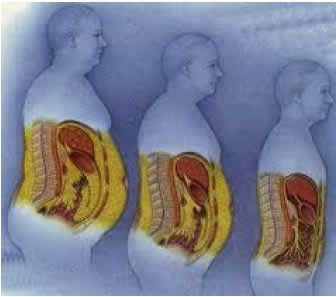[Clinic Logo]
Healthy Living
for Life


Project Overview

Our clinic is participating in a national research project to connect clinics with community resources to support healthy living around diet and physical activity. The goal of the project is to help patients achieve and sustain healthy diet and exercise behaviors.
Patients invited to participate will receive a referral from their doctor to a local resource for physical activity or weight management. Participants will be asked to complete two surveys over 4 months. For more information, contact the Oregon Health & Science University Investigator Lyle J. Fagnan, M.D., at 503-494-4365.
IRB #: 00006936

What is "Health"?
More than a focus on weight—our clinic is interested in promoting healthy lifestyles that encompass diet, exercise and social well-being for all patients. Good health may be achieved by following current recommendations for good health. The USDA recommends 35 minutes of moderate-intensity exercise a day and a diet full of fruits, vegetables and whole grains.
What is Body Mass Index (BMI)?
Your health care team will measure your weight and height to calculate your BMI. This ratio of height to weight is used to identify possible weight problems. BMI is generally classified into four categories. If your BMI is:
- Less than 18.5, it falls within the "underweight" range.
- 18.5 to 24.9, it falls within the "normal" weight range.
- 25.0 to 29.9, it falls within the "overweight" range.
- 30.0 or higher, it falls within the "obese" range.

Why does BMI matter?
- Obese and overweight describe ranges of weight that are greater than what is considered healthy.
- Underweight describes a weight that is lower than what is considered healthy.
If your BMI falls outside of the "normal" weight range, you may want to talk to your health care team about how you might achieve a healthier body weight. Patients who are overweight or obese may be more likely to be at risk for heart disease, type 2 diabetes, high blood pressure and even cancer.
How do you know if you need to make a change for a healthier lifestyle?
Making changes can be difficult. Your health care team can help you make these changes by referring you to places in your community that specialize in healthy eating and active living changes.
Your health care team will talk to you about your views on your goals for achieving this healthy lifestyle.
| For a list of resources available in your community, see the back page of this brochure. |
Additional Resources
- Oregon Rural Practice-based Research Network Website: www.ohsu.edu/orprn
- Oregon Health & Science University Website: www.ohsu.edu
- Agency for Health Care Research & Quality Website: www.ahrq.gov
- United States Department of Agriculture Website: www.usda.gov
- U.S. Food & Drug Administration Website: www.fda.gov
Community-based Resources
(Clinic to choose community resources with contact information to be listed below)
Diet:
- xxx
- xxx
Physical Activity:
- xxx
- xxx
Smoking Cessation:
- xxx
- xxx
Emotional Health:
- xxx
Diet and Physical Activity:
- xxx
- xxx
Ask your health care team for more information.



